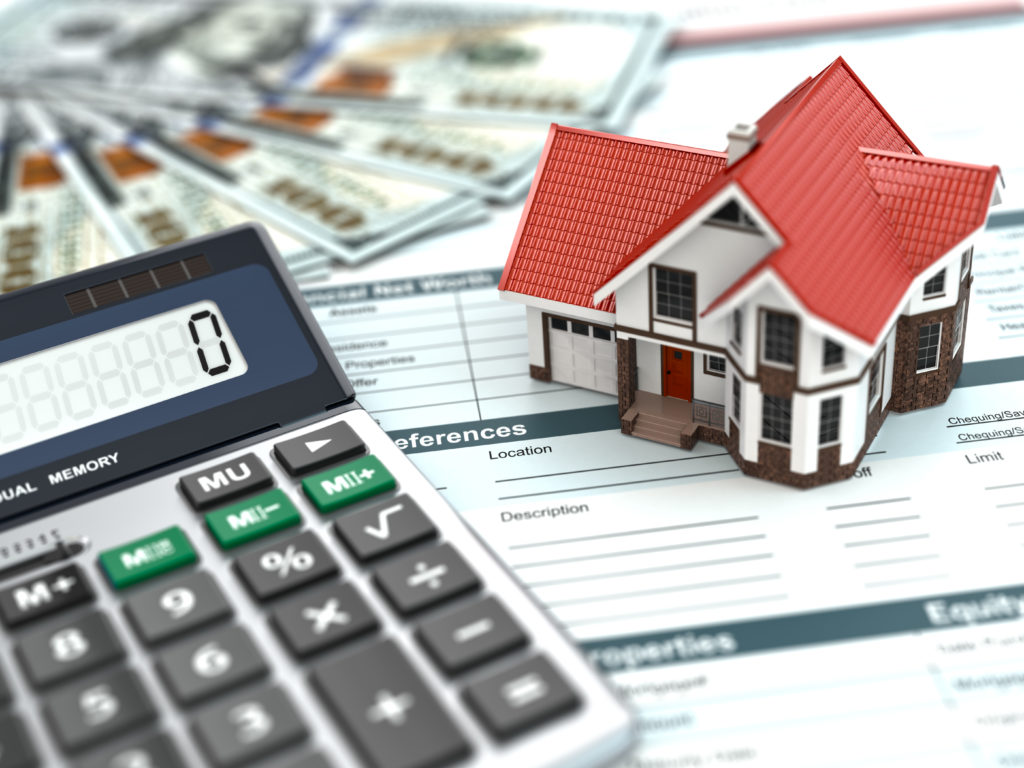All About Preparing to Buy or Refinance a Home

How to Make this the Year You Buy a House
Very few things in life are more fulfilling than buying your first home. So many families work tirelessly for years to get to this joyous moment, and that’s exactly the reason why I do what I do!
I love being able to be a part of seeing someone’s dreams come true. Being the one to tell someone “You’ve done it!”
Here are a few ways to make this year the one you get the loan you need to get the house of your dreams!
Get Familiar with Your Credit Score
How does your credit score affect your ability to buy a home? This is an area I love to help my clients with! Not only can I help you figure out your credit score, I can give the info you need to get a handle on your credit score so you know exactly what to do with it.
Pick Best Option for Down Payment
“Down Payment.” We don’t have to be afraid of a down payment. There are many different options when buying a home, and finding the best option for you when it comes how much you spend on a down payment is very important.
Many home purchases require a 10-20% down payment, but not all. There are multiple options for you as you look at how much money you’ll pay up front.
Don’t shudder in fear when you hear “down payment,” breathe and let’s look at the options.
Identify Priorities/Deal-Breakers for a Home
Oftentimes, homebuyers don’t have a list of what they’re looking for. They walk into an open house just hoping to be “inspired.” That sounds great in principle, but it’s not that easy.
All homebuyers need to create a list of both priorities and deal-breakers. It’s like going to buy a car with no game plan. You walk onto the lot and the salesman can tell right away that you are a little minnow just floating around waiting to be devoured. Don’t let that happen. Put together a plan that acts as your preparational armor for home buying.
A list of priorities could look like:
- At least 4 bed/2.5 bath
- Two car garage
- Certain square footage
- Neighborhood feel
And the list of deal-breakers could look like:
- Houses on busy streets
- No parks in the area
- Rot/mold in the house
- Year the house was built
Whatever your list is, if you walk in prepared, you won’t feel the pull and push of each home you see. If you’re prepared, you’ll know exactly if the house fits your priorities or ticks a few of your deal-breakers.
Be prepared, you’ll thank me later.
Get Pre-Approved
If you want to get into your home this year, you’ll need approval for a loan. It’d be amazing if we all carried around enough cash to buy houses sight-unseen, but I’ve yet to have that experience.
One of my favorite parts of my job is getting people “pre-approved.” This means that before you’ve started to loan process, we’ve checked your credit, verified your documentation, and approved you to pursue a home loan.
This is where I’d love to come alongside you and help get you pre-approved. Let’s make that dream a reality! Get in touch today.

How Much House can You Afford? Here are 5 Tips to Help Figure Out Your Budget
Buying property is probably one of the most exciting events in anyone’s life, and as such, it can also be very easy to get carried away. Realtors will try to upsell you (that’s their job), and that dream house that is just outside of your budget can and will take over if you are not careful. That is why before you even look at any properties, it is essential that you figure out the budget you can afford and do not go over it no matter how tempting. Let’s look at some tips you can put into place to help work out your budget and ensure that your home purchase does not end up making your life a misery.
Put Down as Big a Deposit as Possible
The problem with buying any property is that people get impatient. Rather than save up a large deposit, which can take years in some cases, they choose only to put down a small deposit to get their foot in on the property ladder. Although this is understandable, it is also a terrible idea. As many homeowners found out during the recession, property prices can go down as well as up, and anyone who only puts down a small deposit can very quickly find themselves in a position of negative equity. This is where their property is worth less than the price they paid for it, which then means they are effectively trapped, or at the very least have very few options. Always try to put down a minimum deposit of 25 percent of the price of the property, as this will lower your monthly payments and still let you enjoy your life. Although you may be able to afford a more expensive property, you still want to be able to go out for the occasional meal, take a vacation, or just have fun. But if your payments are set too high, then your house can quickly become a curse rather than a blessing. Remember in addition that if anything goes wrong with your property, it is your responsibility to fix it, and if funds are tight, this could signal disaster.
Work Out A Budget Before You Begin Looking For A Property
The best advice we can give anyone before they take the risk of getting house fever is to work out a budget before you start looking. Build things such as repairs, redecoration costs, and saving for emergencies into the budget, just in case something goes wrong. By having budgeted for the unexpected, you have at least some shelter from the storm.
Consider the Type of Property You Are Buying
For years realtors have marketed the dream of moving into the perfect home where everything is done for you, but be warned – those properties will also cost more money. If you are on a budget (which is the sensible thing to do), think about buying an older property which might need some renovation; this will drop the price. Alternatively, buy a smaller property, but be prepared to stay there for a few years to maximize your profit. Profit from real estate can be achieved, but generally speaking plan to be in a property for a minimum of five years in order to break even.
Don’t Forget About Other Expenses
The cost of the property is not the only price you will have to pay. Closing costs can shock some people if they have not taken them into consideration; the average closing costs for a first-time buyer amount to somewhere in the region of $5000 minimum. Ask your realtor to estimate your closing costs before you even look at a property, so that you don’t end up with a nasty surprise upon completion.
The Profit Is Made When You Buy the Property
Although your home should not be viewed exclusively as an investment, many people are looking to increase their net-worth and secure their future by purchasing a property. What many people fail to recognize is that the profit is always made when you buy a house, not when you sell it. This may sound strange because you spend money when you buy a property, but the less money you pay at the time of purchase maximizes the amount of profit you will ultimately make when you sell. Don’t fall into the trap of becoming so focused on one property that you overpay for it. Lock in the lowest price, and you will enjoy the most profit later when the time comes to sell.
By following these simple tips, you will end up with a beautiful property that you can afford, and which brings you pleasure and stability over many years.
If you have any questions about anything contained in this article, then contact us today. We can help answer any questions you might have, and even advise you on your budget setting.

Performing a Spring Cleaning on Your Finances
It’s that time of year when most people sit down and set goals for themselves. Some people are focused on earning a promotion, getting into a great school, or exercising more regularly. It’s great to have goals that keep you striving to improve, to get better. Just make sure to include a financial spring cleaning as you take inventory. It’s never too late to start getting things in better financial order. The right approach to personal finance can set you up for a bright future with less stress about student loans, credit cards, and other common pitfalls that string us up financially. Here are three simple ways you can get a head start on this year’s financial spring cleaning.
Get a Free Credit Report
There are three major credit bureaus in the United States. Each of them provides a free credit report each year to those who ask. Credit reports lay out any credit lines you have open like credit cards, mortgages, auto loans, etc. They also track any accounts you are late on, or were late on in the past, that are hurting your credit score.
No spring cleaning on your finances is complete without going through your credit report. If you carry any credit card balances, close any open accounts you’re not using to avoid temptation. A good credit score will mean lower loan rates and higher credit limits. This can save big when buying a car or home. Make improving your credit score a top priority.
Start a Budget
This will be tedious at first, but really there’s no better way to get a grip on spending like keeping a strict budget. The first step is just to track how much you’re spending on what. Record every time you go to the gas station, eat at a restaurant, or pay a recurring cable bill. The key to financial wealth is knowledge. Once you know where your money is going each month, you’ll know what needs to be done to improve your financial picture. If you are spending too much, have an honest conversation with yourself about spending wants vs spending needs. Start cutting out the wants so you can start saving.
Begin an Investment Education
Once you have a budget set and you know where you stand with your credit situation, it’s time to start learning where to put that money you’re going to start saving. The priority is to make sure you have an emergency fund in place, so you don’t have to turn to high-interest rate credit cards to cover emergency costs. After you’ve nested three to six months of spending away, you’re ready to invest. Check out companies like Vanguard or other low-fee mutual fund or exchange-traded fund (ETF) companies. They have education tools and people who can walk you through your first investment steps.
Do the work now that will set you up for success in the long run. Avoid simple money mistakes so your money can start working to build wealth for you. If you need any advice or have questions, let me know!

3 Simple Ways to Build Credit before Applying for a Mortgage
One of the most common barriers facing Oregonians applying for a mortgage loan is their personal credit score. Lenders are looking for a good score to assess their risk in lending you the money you need to buy a house.
The good news is that your credit score is not mystically determined. According to this article from Experian, there are five primary factors for determining your credit score:
- Payment history
- Credit utilization
- Credit history length
- Diversity of credit accounts
- New credit accounts
Some clients don’t have a good credit score because they avoid paying for things on credit. While this is sound financial behavior, it backfires when these people apply for a mortgage. Lenders want to have some idea that the people they are lending tens or hundreds of thousands of dollars to are going to pay it back. If you haven’t paid anything back because you’ve never had anything to pay back in the first place, that’s problematic for them. It’s a problem with our current system, but that’s the way things work. The good news is, the tips here will help you build your credit in a sound way.
Other people’s scores aren’t so good because of financial instances in their past which haven’t been good. The past is past most of the time – there’s not much you can do about that unless there’s something not right with your credit report, in which event you can challenge your report with the relevant credit bureau. But if that’s not the case, what can you do to move forward?
One: Give it Time
It takes time to build a solid line of credit. Lenders need to see a history of responsible credit handling before they’ll be willing to hand out large sums of money.
So give the process time. Don’t expect your score to get an immediate boost. Come up with a plan and follow it. Check your credit score regularly to see your improvement.
Two: Get a Conservative, Diverse Mix of Credit
There are many loans you can take out in order to build credit. Just a few are:
- Student loans
- Car loans
- Credit cards
Even in situations where you’d rather just pay cash, it may make sense to take out one of these lines of credit simply so that you can build your credit score. Just make sure that you pay it off! Don’t take out a loan that you can’t afford to pay back on time or (better yet) ahead of time, or your credit score will suffer (not to mention your stress levels).
However, don’t go too far in this direction. Your debt-to-income ratio must stay at a comfortable threshold before other lenders will be willing to open their pocketbooks to you. Again: make sure you are comfortably able to pay back any loan you take out. That includes credit cards.
One final note: Don’t just take out 3 credit card accounts and assume that this will be enough. You want some diversity in your lines of credit. Look for opportunities to pay other things off over time. Even a good rental history can be very helpful (though this doesn’t do much for you if you’re paying under-the-table in a personal agreement between you and your landlord). If you’re living with roommates, you may want to try being the one on the rental agreement. It might be more of a hassle for you personally to collect shares from your roommates, but it’ll pay off for you in building your score.
Three: Avoid New Loans Immediately before Applying for a Mortgage
Lenders want to see that you’re stable – that they can count on you to take on responsible amounts of debt and be able to pay it back. If they see that you’ve been applying for several different lines of credit at one time, that shows that things are in a state of flux. That’s not going to make them too confident, and thus such behavior lowers your credit score.
That’s why you don’t want to take out new lines of credit for a while before applying for a home loan. Actually, just getting your credit score checked by a lending institution can have a negative impact on your score. So particularly in the months before you apply for a mortgage, don’t take out any new lines of credit. Don’t apply for any new lines of credit. Use what you have responsibly and pay off your debts. The lower your debts at the time you apply, the better off you’ll be.
Questions?
If you have any questions about home loans and how to get your credit score to a healthy place before you apply, please give your friendly Oregon Loan Lady a call. As a mortgage broker, I help clients sort through the world of credit and loans all the time.
Comments Off on All About Preparing to Buy or Refinance a Home

 We provide unparalleled customer service, and go above and beyond to ensure that our customers get the best possible loans.
We provide unparalleled customer service, and go above and beyond to ensure that our customers get the best possible loans.
